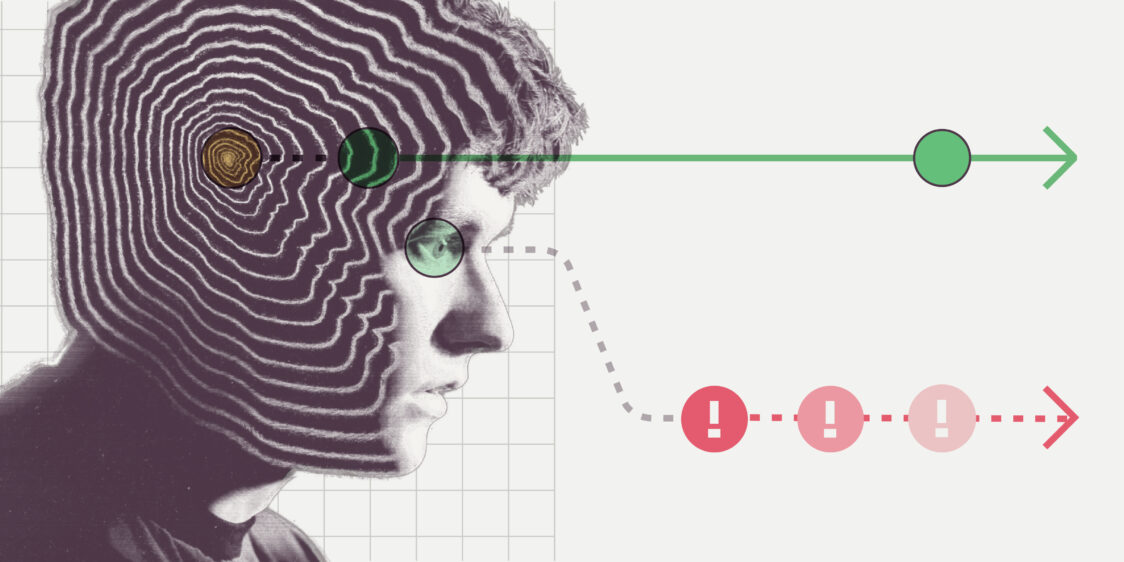
Why is it important to pay attention to the beginning of the story?
The beginning creates expectations, and the listeners’ expectations must be met. In the first three seconds, due to a strong input, you need to make people feel that at the end of the speech they will receive a valuable gift – only then they will have an incentive to delve into the content and listen to the end.
As a rule, in business they do not start telling directly from the events: “Once in 1992 I went out into the street, when suddenly …”. More often than not, we begin the story with a connecting phrase that immerses the listener in context: what will be discussed, what benefits we will communicate, why we are telling the story at all.
What happens if I don’t meet the expectations of the audience?
Let’s imagine a situation. A guy and a girl are having dinner in a restaurant. Suddenly he kneels in front of his companion with a box in his hands and says: “Now I will ask you a question that will change your life and mine forever.” Opens the box, and inside … earrings. But a different picture of the development of events has already formed in our head. If the expectations are not met, we are disappointed.
It’s the same with the beginning of history. You can intrigue listeners from the very first lines with the phrase: “Colleagues, now I will tell you about the main principle of leadership.” But, if in the story you do not communicate the principle, they will no longer want to listen to you. Trust will be lost and the audience will be disappointed. So keeping the promise you make at the beginning is a prerequisite for a good story.
Our Supporters
Our Blog
- Why Star Wars Remains One of the Greatest Storytelling Models of All Time
 In the ever-evolving landscape of content creation, where trends come and go at the speed of a social scroll, one franchise continues to serve as the gold standard of narrative design: Star Wars. Its story, spanning decades, galaxies, and generations, offers not just entertainment — but a blueprint for powerful storytelling that connects across cultures, […]
In the ever-evolving landscape of content creation, where trends come and go at the speed of a social scroll, one franchise continues to serve as the gold standard of narrative design: Star Wars. Its story, spanning decades, galaxies, and generations, offers not just entertainment — but a blueprint for powerful storytelling that connects across cultures, […] - Constructive Conflict Resolution
 Conflicts are an inevitable part of human relationships, whether in personal or professional settings. While they can sometimes lead to negative outcomes, conflicts, when approached correctly, can also foster growth, understanding, and innovation. Effective communication is the key to ensuring conflicts are resolved constructively. This article delves into the strategies to use communication as a […]
Conflicts are an inevitable part of human relationships, whether in personal or professional settings. While they can sometimes lead to negative outcomes, conflicts, when approached correctly, can also foster growth, understanding, and innovation. Effective communication is the key to ensuring conflicts are resolved constructively. This article delves into the strategies to use communication as a […] - Strengthening Casino-Client Relations with Apple Pay
 In the fast-paced realm of online gaming, the relationship between casinos and their patrons is paramount. Apple Pay has emerged as a pivotal tool in this dynamic, not only simplifying transactions but also enhancing the overall experience for both parties. Let’s delve into the multifaceted advantages of Apple Pay in the online casino world. Hassle-free […]
In the fast-paced realm of online gaming, the relationship between casinos and their patrons is paramount. Apple Pay has emerged as a pivotal tool in this dynamic, not only simplifying transactions but also enhancing the overall experience for both parties. Let’s delve into the multifaceted advantages of Apple Pay in the online casino world. Hassle-free […] - Unlock The Power Of Storytelling With These Essential Tips
 Storytelling is an ancient art form that has the power to captivate and connect with audiences on a deep emotional level. Whether you are a writer, marketer, teacher, or public speaker, mastering the art of storytelling can greatly enhance your ability to convey ideas, evoke emotions, and leave a lasting impact on your listeners. From […]
Storytelling is an ancient art form that has the power to captivate and connect with audiences on a deep emotional level. Whether you are a writer, marketer, teacher, or public speaker, mastering the art of storytelling can greatly enhance your ability to convey ideas, evoke emotions, and leave a lasting impact on your listeners. From […]














